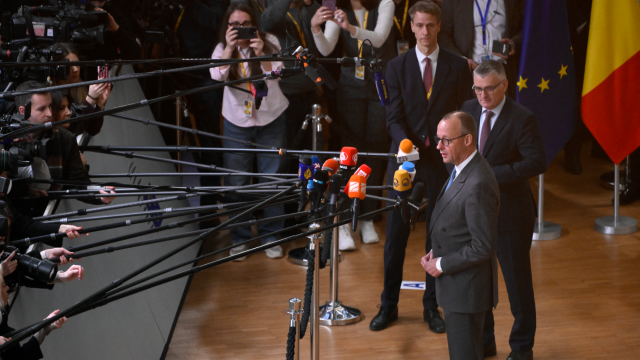WASHINGTON — The White House will have a difficult but not impossible job persuading Congress to approve permanent normal trade relations with Russia because of human rights concerns, a senior U.S. lawmaker said Tuesday.
"I think in the end, if the economic issues are resolved, the likelihood is that [permanent normal trade relations] will be passed — with a lot of debate," said Representative Sander Levin, the top Democrat on the House of Representatives Ways and Means Committee.
The United States has permanent normal trade relations, or PNTR, with all but a few countries. It means they are entitled to the same tariff treatment that most other countries enjoy, without that being subject to a periodic review.
In a preview of what the White House can expect, Levin criticized the Russian judicial system for a lack of fair and open trials and said the Russian government's handling of "those who dissent is unacceptable and very worrisome."
"People are being killed there for exercising their basic rights," Levin said in remarks at the Peterson Institute for International Economics.
President Barack Obama, as part of a broader effort to "reset" relations with Russia, has given strong backing to Moscow's hope this year of finally joining the World Trade Organization after more than 15 years of negotiations.
If that happens, the United States would be required under WTO rules to repeal a Cold War-era provision known as the Jackson-Vanik amendment that tied U.S. trade relations with Russia to rights of Jews and other religious minorities to freely emigrate.
Russia has been in compliance with the provision for years, so it currently has no practical impact on trade.
But if U.S. lawmakers refused to repeal the provision and grant permanent normal trade relations, Russia would be entitled to deny U.S. companies all of the market-opening concessions it made to join the WTO.
That concerns some business leaders who believe Congress should approve PNTR for Russia even before it joins the WTO.
Levin dismissed that possibility.
"The only handle that the Congress has is PNTR. So that's why we've refused to give it up," he said.
The Democrat said the Obama administration should not sign off on Russia's admission to the WTO until a number of remaining issues are resolved.
Those include agriculture, intellectual property rights and potentially automotive concerns, he said.
The American newsletter CounterPunch this month published a Dec. 2009 cable sent by U.S. Ambassador to Russia John Beyrle and obtained by WikiLeaks. "Xenophobic currents in Russian society, ever-present even in the best of times, have undoubtedly worsened since the fall of the Soviet Union," the ambassador wrote, "and have spiked since the onset of the economic crisis. As our contacts noted, the crisis could easily exacerbate latent anti-Semitism, as it has already exacerbated overall ultra-nationalist sentiment."
"At the same time," the cable continued, "it is clear from the evidence that the overall trend for Jews in Russia is positive. As a "traditional" religion, Judaism has an established foothold, in contrast to minority religions that have encountered problems. It is therefore difficult to dispute Prime Minister Putin's assertion, offered during his televised Q and A session on December 3, that the Jackson-Vanik Amendment is now 'an anachronism.'"
A Message from The Moscow Times:
Dear readers,
We are facing unprecedented challenges. Russia's Prosecutor General's Office has designated The Moscow Times as an "undesirable" organization, criminalizing our work and putting our staff at risk of prosecution. This follows our earlier unjust labeling as a "foreign agent."
These actions are direct attempts to silence independent journalism in Russia. The authorities claim our work "discredits the decisions of the Russian leadership." We see things differently: we strive to provide accurate, unbiased reporting on Russia.
We, the journalists of The Moscow Times, refuse to be silenced. But to continue our work, we need your help.
Your support, no matter how small, makes a world of difference. If you can, please support us monthly starting from just $2. It's quick to set up, and every contribution makes a significant impact.
By supporting The Moscow Times, you're defending open, independent journalism in the face of repression. Thank you for standing with us.
Remind me later.





